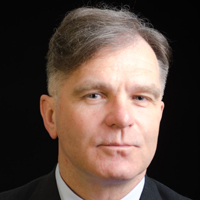The United State of Women Summit in June brought together thousands of women from around the world to and a few dozen men to discuss key gender equality issues. Leszek Sibilski was one of the few dozen men present and shares his experience.
Find out more about RSA Global
On the morning of June 14, 2016, I found myself surrounded by 5,000 women as part of the first day of the first United State of Women Summit convened by the White House at the Walter E. Washington Convention Center.
The #StateofWomen movement brought together activists from all 50 US states and from around the world. The Summit is a result of President Obama’s establishment of the White House Council on Women and Girls, which was initiated seven and a half years ago. The two-day gathering focused on key gender equality issues including economic empowerment, health and wellness, educational opportunities, violence against women, entrepreneurship and innovation, as well as leadership and civic engagement. Participants had the opportunity to celebrate their achievements and to be inspired to meet the challenges yet to come.
I was honored to attend this historic assembly particularly as there were probably only a few dozen men invited, excluding the secret service detail and support services. But I was in very powerful company: Michelle and Barack Obama, Oprah Winfrey, Nancy Pelosi, the Vice-President Joseph Biden and Warren Buffett, Chairman and CEO Berkshire Hathaway.
So how did I come to be nominated to attend this remarkable event? Although I am a sociologist by training and passion and preach social justice and equality to my students every day, I am a latecomer to the gender equality part of my discipline. It took me a long time to be inspired and the right person to enlighten me.
This was Canadian Sarah Marchildon whom I met on a World Bank mission during the 2013 Convention of the Parties (COP 19) of the United Nations Framework Convention on Climate Change. On the last night of our trip we got together for a friendly dinner with our colleagues. Sarah mentioned a project – the bamboo bicycles female entrepreneurship in Ghana – she had been working on as part of the UN’s Momentum for Change initiative. As I exchanged a quick look from one of my more ‘macho’ colleagues, Sarah held her ground and I started to feel embarrassed. Returning home, I began to pay more attention to gender equality issues by reading, writing and lecturing more on the topic. Sarah became one of my mentors; we all need a person who is going to change the course of our opinions more by a good example rather than by a fight or argument.
So, my participation in the Summit was a tribute to women like Sarah; they are the real changemakers. I now extensively teach, read, and write about gender parity; however, I have not forgotten about my own gender. I am the one who constantly reminds our global community that every year on November 19 there is a very important holiday to celebrate: The International Men's Day!
At the White House Summit Vice-President Joseph Biden spoke on the worldwide violence against women or as he called it “the cardinal sin of all sins”: Warren Buffett reminded everyone of the article he wrote his article for Forbes Magazine where he stated that women are key to America’s prosperity. The highlight of the day was the sparkling speech made by Barack Obama whose comments on the role that culture plays in perpetuating sexism made a very powerful impression: “If we are going to truly change our policies and our politics, then we’re also going to have to change… the way we see ourselves and this is happening already, but I want us to be more intentional about it... The emotional, sexual and psychological stereotyping of females begin when the doctor says it’s a girl… and that has consequences for all of us...”
As a sociologist and former reporter, I look for sideline stuff to write about. On this occasion, I was fascinated by the all-gender restrooms, which for me was a novelty. Due to the high number of females, the organisers were forced to look for this logistical solution that in the end was an amazing social experiment besides being a physiological necessity. Waiting in a long line was a very humbling moment, but the rotations inside the restroom were done seamlessly with full respect for both sides. Perhaps all-gender restrooms should be implemented at other venues and events around the world?
On a person level, I received very warm and sincere thanks from the women present. I wonder if we men would have behaved the same way seeing women at a summit for men? I truly hope so, because the bar has been raised very high. At the end of the summit, Michelle Obama and Oprah Winfrey deliberated about what message the present men should leave with. They both decided, with total agreement from the audience: Be better at everything! Be better husbands, be better fathers, be better employers! They all agreed that involving boys and men is critical for the well-being of girls and women in the near and distant future.
Leszek Sibilski is a sociologist and advocate for issues related to climate change, family, public policy, global poverty, youth, and role of women in society.

Be the first to write a comment
Comments
Please login to post a comment or reply
Don't have an account? Click here to register.